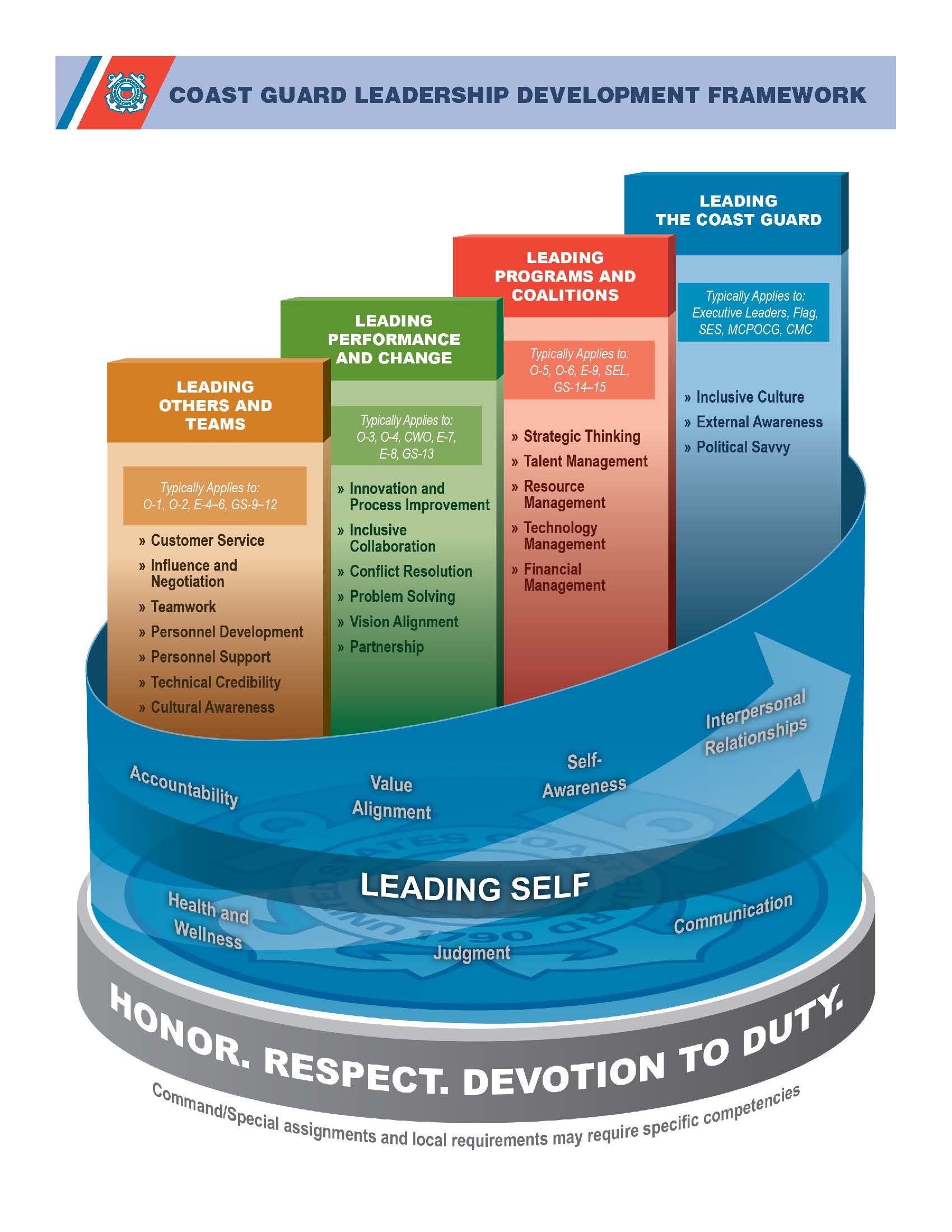Return to AUX60 C-School's Home Page.

Leadership competencies are the knowledge, skills, and expertise the Coast Guard and Auxiliary expect of their leaders. While there is some overlap in these competencies, they generally fall within four broad categories: Leading self, Leading others, Leading performance and change, and Leading the Coast Guard Auxiliary.
Together, these four leadership categories and their elements are instrumental to career success. Developing them in all members of the Coast Guard team will result in the continuous improvement necessary for us to remain Semper Paratus.
- Leading Self: Fundamental to successful development as a leader is an understanding of self and one’s own abilities. This includes understanding one’s personality, values, and preferences, while simultaneously recognizing one’s potential as a member of the Coast Guard team. Personal conduct, health and well-being, character, technical proficiency, lifelong learning, followship, and organizational commitment are elements to consider when setting short and long-term goals focused upon the leadership development of “self.”
- Leading Others: Leadership involves working with and influencing others to achieve common goals and to foster a positive workplace climate. Auxiliarists interact with others in many ways, whether as supervisor, mentor, manager, team member, team leader, peer or worker. Positive professional relationships provide a foundation for the success of our Service. Showing respect for others, using effective communications, influencing others, working in teams, and taking care of one’s people are elements to consider when evaluating one’s capacity for leading others. Developing these qualities will increase capacity to serve.
- Leading Performance and Change: Members of the Coast Guard team constantly face challenges in mission operations. To meet these challenges, leaders must apply performance competencies to their daily duties. Performance competencies include developing a vision, managing conflict, quality and daily management of projects, appraising performance, problem solving, creativity, innovation, decision making, and customer focus. Having these competencies enables each leader—and the Service—to perform to the utmost in any situation.
- Leading the Coast Guard Auxiliary: As leaders gain experience in the Coast Guard Auxiliary, they must understand how it fits into a broader structure of the Coast Guard, government, and the nation as a whole. At a local level, leaders often develop partnerships with public and private sector organizations in order to accomplish the mission. The Coast Guard "plugs in" via its key systems: money, people, and technology and the Auxiliary supports Coast Guard activities. A leader must thoroughly understand these systems and how they interact with similar systems outside the Coast Guard. An awareness of the Coast Guard's value to the nation, and promoting that using a deep understanding of the political system in which an Auxiliarist operates becomes more important as one gets more senior. Leaders must develop coalitions and partnerships with allies inside and outside the Auxiliary.
To learn more, visit the Auxiliary Classroom and the Leadership Competency Series Portal to enroll in the courses. Click on the image below.
